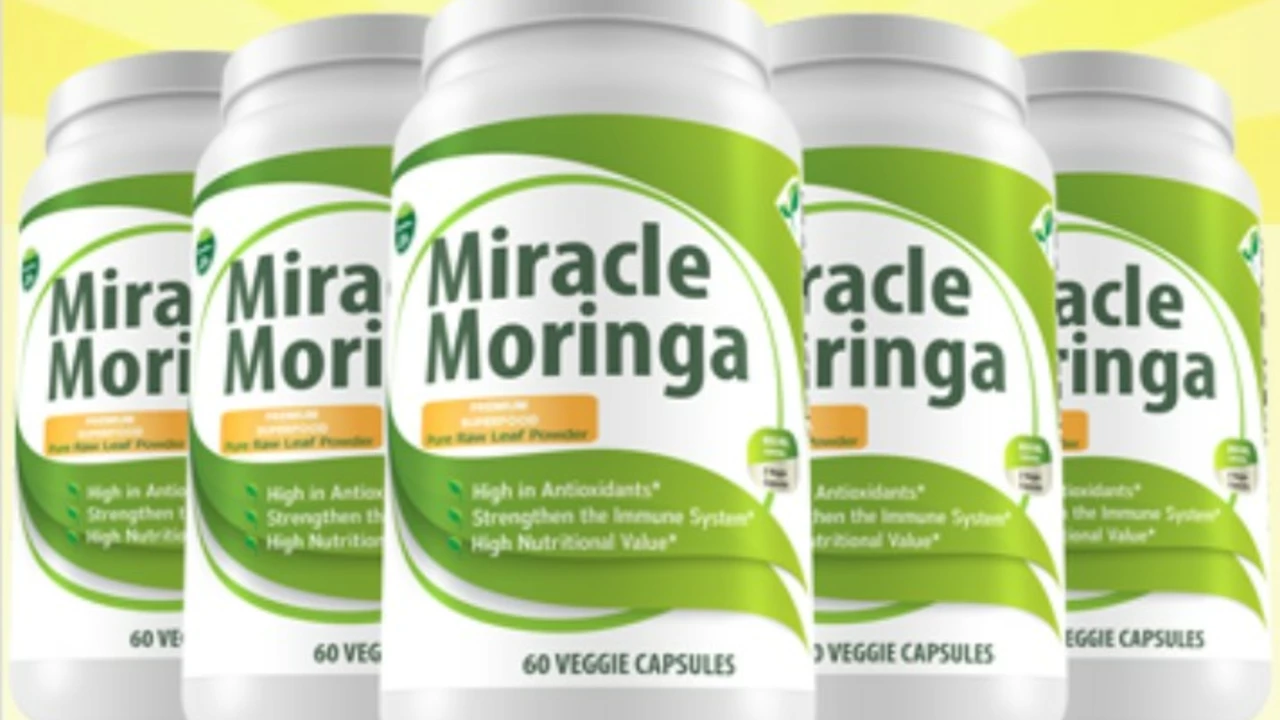Ever heard of moringa? This small tree, Moringa oleifera, is a common herbal supplement that people use for energy, nutrition, and overall wellness. It’s not a magic cure, but leaves and powder do offer real nutrients and some clinical evidence for specific uses. Read on to learn what moringa can and can’t do, how to use it, and how to pick a safe product.
Moringa leaves are rich in vitamins and minerals. A small serving can provide vitamin C, vitamin A, potassium, iron, and a surprising amount of protein for a plant source. The leaves also contain antioxidants like quercetin and chlorogenic acid, which labs link to lower inflammation and better blood sugar control. These are useful facts if you want a nutrient boost without adding a lot of calories.
People take moringa for a few reasons: to support healthy blood sugar, lower cholesterol, reduce inflammation, and improve energy. Clinical studies are mostly small but promising. For example, short trials show moringa leaf powder can lower fasting blood glucose in people with type 2 diabetes by modest amounts. Other trials report reductions in LDL cholesterol and markers of inflammation after several weeks of moringa supplements. Think of moringa as a helpful add-on, not a replacement for prescribed drugs.
Moringa may also help with recovery and muscle health. Athletes sometimes use it because of its antioxidant profile and the plant protein. Still, results vary by dose, form, and study quality. Match your expectations to what the evidence supports: modest improvements over weeks, not overnight fixes.
Common forms are leaf powder, capsules, tea, and oil. Typical daily doses in studies range from 1 to 6 grams of leaf powder. Start low—around 1 gram—and watch how you feel for a week before increasing. Add powder to smoothies, yogurt, soup, or sprinkle over salads. Capsules offer convenience and consistent dosing.
Be careful if you are pregnant—certain parts of the moringa tree, especially the root and bark, may cause uterine contractions. If you take blood pressure or diabetes medications, talk to your doctor first because moringa can amplify those effects. Side effects are usually mild: stomach upset, gas, or nausea at high doses.
Choose quality supplements: look for organic leaf products, third-party testing, clear ingredient lists, and no added fillers. Avoid products that list root or bark unless a licensed practitioner recommends them. Store powder in a cool, dry place away from sunlight to preserve nutrients.
If you want to try moringa, set a simple plan: pick a trusted brand, start with a low dose, and track changes in energy, digestion, or blood sugar if relevant. If you have chronic conditions or take medicines, ask your healthcare provider before adding moringa. Small, steady changes are safer and more useful than big experiments.
Expect benefits to appear over several weeks; keep a simple log of dose and effects, and revisit your plan with your clinician if needed for safety reasons.

I recently came across an incredible dietary supplement called Moringa, and I just had to share its amazing benefits with you all. This nutrient-packed plant is transforming lives and improving health in numerous ways. Rich in vitamins, minerals, and amino acids, Moringa has been known to boost energy, improve digestion, and even support a healthy immune system. It's no wonder that it's gaining popularity as a superfood! If you're looking for a natural way to enhance your overall well-being, you might want to consider giving Moringa a try.
Twenty-seven U.S. states have special rules restricting generic substitution for narrow therapeutic index (NTI) drugs like warfarin, levothyroxine, and lithium. These laws vary widely - from outright bans to dual consent requirements - creating a patchwork that affects patient safety, pharmacy workflows, and drug costs.
I recently came across a study discussing the effectiveness of Minocycline for sinus infections. It turns out, this antibiotic has shown promising results in treating both acute and chronic sinusitis. The study suggests that Minocycline may reduce inflammation and bacterial growth in the sinuses, providing relief for those suffering from sinus infections. However, it's important to consult with your doctor before using this medication, as it may not be suitable for everyone. So, if you're struggling with a sinus infection, Minocycline might be worth looking into as a potential treatment option.
Hey there awesome parents! Managing spasms in kiddos can be as tricky as solving a Rubik's cube blindfolded, am I right? But don't fret, there are ways to ease those twitching tiny muscles. First off, keeping your child hydrated is as crucial as keeping your plant watered - you don't want either to wither, right? Also, regular stretches are like the secret ingredient in Grandma's pie, they can work wonders! So, next time your little one starts twitching like a breakdancer, remember these tips and know that you've got this under control!
Learn how to safely buy cheap generic Provera online in Canada. Get a step‑by‑step guide, price comparison, verification tips, and FAQs for a hassle‑free purchase.
Learn what post-stroke depression is, its causes, key symptoms, and effective treatment options, including meds, therapy, and rehab strategies.